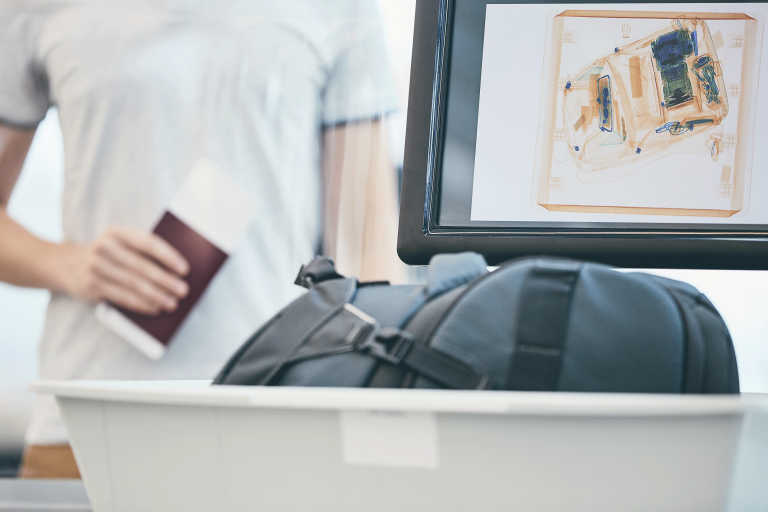Hand luggage restrictions: What items are not allowed?
Hand luggage or carry-on is pretty handy to bring with you when traveling because it is easy to carry, hard to lose, and helps travelers avoid paying baggage fees. There are strict rules on what is allowed in hold luggage on a plane, and it is important to get your head around the restrictions in order to make boarding your flight easier. The restrictions may change a little with each airline, but according to the Transport Security Administration's rules and regulations, there is a general guide on universal restrictions. These restrictions will be explained in detail to make things simple.
Liquid restrictions
Sharp objects
Agricultural products
Sporting equipment
Firearms and ammunition
Explosives and flammable items

Liquid Restrictions
Many countries have restrictions on the type and quantity of liquids that you may carry in your hand luggage. For passengers carrying liquids, they should not be more than 3.4 ounces or 100 ml. Containers bigger than 3.4 ounces are not allowed even if they are not full. However, people traveling with small children may be exempt from this restriction. Travelers who intend to carry liquids such as shower gel, perfume, contact lens solution, and pastes should pour the liquids into travel size containers.
Liquids such as acids, corrosives, alkalis, caustic soda, and vehicle fuel are not allowed on the plane. Liquid medication laws vary by country; however, in most cases, you can carry almost any amount as long as you have a doctor's prescription.
Sharp objects
Sharp objects are not allowed on planes as they can be used as weapons, thereby posing a potential threat to those on board. Knives with blades longer than 6cm, saws, scissors with blades longer than 6 cm, drills, and nail guns are not allowed on the plane. Passengers are also unable to carry razors unless they are disposable. Electric razors are allowed. Cutting instruments are not allowed in carry-on bags; instead, you can travel with plastic cutlery and safety razors in your hand luggage.
Agricultural products
Meat, fruits, vegetables, and other agricultural products are not allowed in hand luggage because of restrictions set by the European Union. Animal products such as meat, cheese, sausage, and lard cannot be carried on a flight.
Sporting equipment
Sporting equipment: baseball bats, ski poles, hockey sticks, golf clubs, and other sporting equipment are not allowed in hand luggage. Roller skates and roller blades are also not allowed in hand luggage. Ion battery-powered personal transportation devices are not permitted in hand luggage or carry-on bags. Javelins, pole vaults, hang gliders, canoes, paddles over 190 cm lengthwise, windsurfing boards and sails are also not allowed in your hand baggage
Firearms and ammunition
Guns and devices that can be used to cause significant injury by firing are prohibited in hand baggage. These items can only be carried in your checked luggage, and it is essential to notify the airline in advance for approval. Other forms of restricted weapons include laser pistols, bows, crowbars and arrows, harpoon guns and spear guns, slingshots, and catapults. You must notify the airlines at least 72 hours before your flight to travel with your equipment. You will need to specify the number of firearms you intend to carry, the type, model, and weight of ammunition.
Explosives and flammable items
Explosives and flammable substances capable of causing harm or serious injury to passengers and boarders of a plane are prohibited in all luggage and cannot be transported. These explosives include dynamite, gun powder, plastic explosives, mines, grenades, blasting caps, detonators, and fuses. Flammable substances include paints, solvents, varnish, liquid oxygen systems, petrol, and cylinders containing combustible gas. Lighter fuel, lighter refills, and matches are forbidden.
At the airport, the security staff may not allow you to access the restricted security areas of the aircraft or airport if you have any of the above-mentioned items. Any other items that can cause concern to security staff can also cause you to be denied access to the flight for security reasons. Each airline has its own restrictions, so it is best to check first with your flight.
